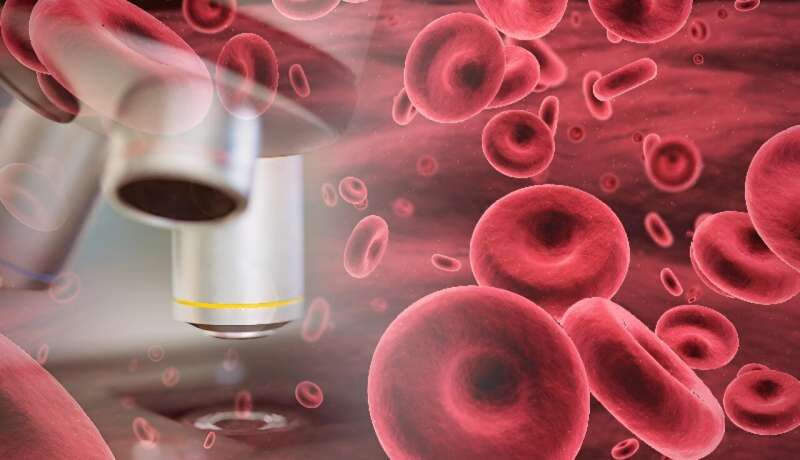The first-in-class oral factor B inhibitor iptacopan improves hematologic and clinical outcomes in anti-C5-treated patients with persistent anemia and in those who have not received complement inhibitors, according to a study published in the March 14 issue of the New England Journal of Medicine.
Régis Peffault de Latour, M.D., from Saint-Louis Hospital in Paris, and colleagues conducted two phase 3 trials to assess iptacopan monotherapy during a 24-week period in patients with hemoglobin levels of less than 10 g/dL. In the first study, anti-C5-treated patients were randomly assigned to continue anti-C5 therapy or switch to iptacopan, and in the second single-group trial, patients who had not received complement inhibitors and with lactate dehydrogenase levels >1.5 times the upper limit of the normal range received iptacopan.
The researchers found that in the first trial, 51 of 60 patients receiving iptacopan had an increase of ≥2 g/dL from baseline in the hemoglobin levels and 42 had a hemoglobin level of at least 12 g/dL, both without red-cell transfusions; none of the anti-C5-treated patients attained the end-point levels. In the second trial, 31 of 33 patients had an increase ≥2 g/dL from baseline in the hemoglobin levels without red-cell transfusion.
No transfusion was received by 59 of 62 patients receiving iptacopan or 14 of 35 patients receiving anti-C5 treatment in the first trial, nor by any patients in the second trial. Hemoglobin levels were increased, fatigue was reduced, and reticulocyte and bilirubin levels were reduced with iptacopan treatment.
"Blocking the complement system proximally at the alternative pathway with monotherapy with an oral factor B inhibitor was effective and safe and did not lead to the use of additional combined terminal blockade," the authors write.
More information: Régis Peffault de Latour et al, Oral Iptacopan Monotherapy in Paroxysmal Nocturnal Hemoglobinuria, New England Journal of Medicine (2024). DOI: 10.1056/NEJMoa2308695
Journal information: New England Journal of Medicine
Copyright © 2024 HealthDay. All rights reserved.























